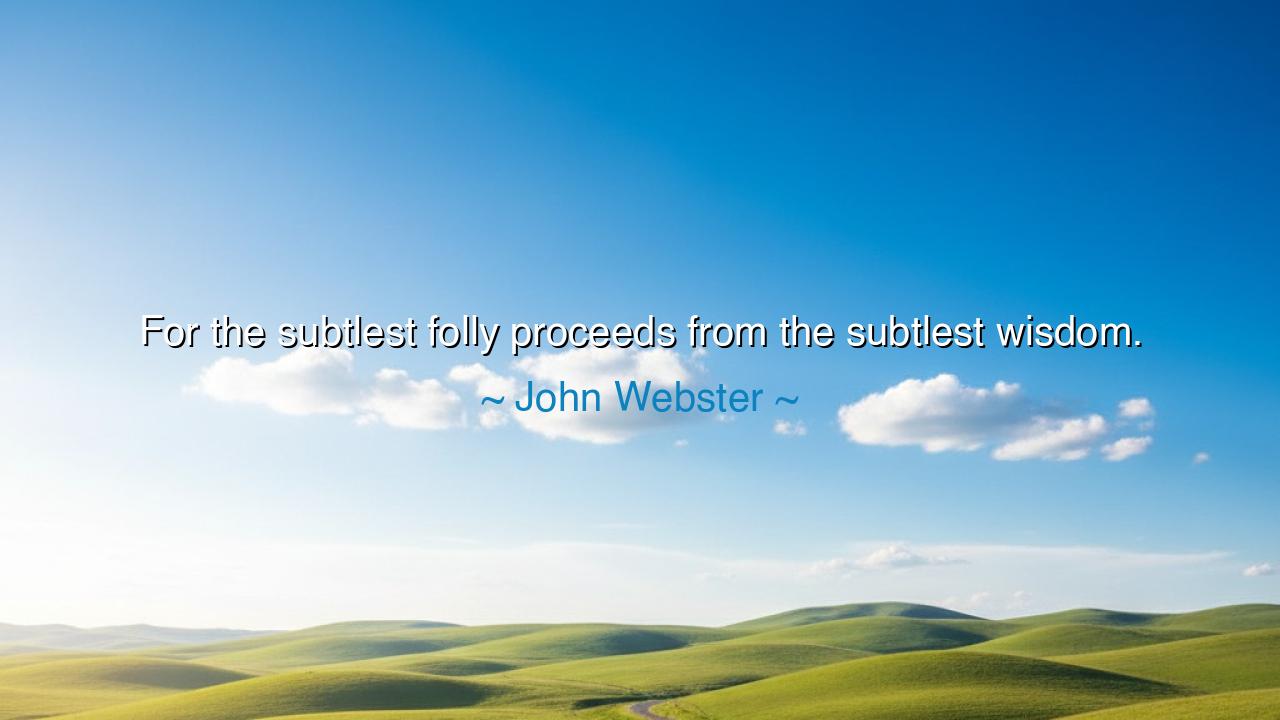
For the subtlest folly proceeds from the subtlest wisdom.






Hearken, children of the ages, to the profound words of John Webster, who proclaimed: “For the subtlest folly proceeds from the subtlest wisdom.” In these words lies the eternal paradox of the human mind: that even the sharpest intellect, the most refined understanding, may give birth to error. Wisdom, when wielded without humility or tempered by virtue, can lead to subtle folly, for the same faculties that perceive the depths of truth may also navigate paths of misjudgment unseen.
Webster teaches that intellect and error are entwined. The brilliance of insight carries within it the seeds of miscalculation, for wisdom encourages daring, speculation, and the pursuit of what others cannot perceive. Yet in this daring lies peril: the most sophisticated understanding can produce decisions that appear foolish when applied to the world of mortal consequence. Folly, like shadow to light, follows even the keenest minds.
Consider the life of Icarus of ancient myth, who, guided by his father Daedalus’ cunning wisdom, fashioned wings to soar into the heavens. It was this very ingenuity—the subtlest wisdom—that gave rise to his tragic folly. In his ambition, the heights that intellect afforded became the instrument of hubris, demonstrating that the finest understanding may still be accompanied by error when tempered with recklessness.
The ancients themselves recognized this delicate balance. Philosophers of Greece and Rome often warned that knowledge without temperance invites ruin. Plato and Seneca counseled that wisdom must be guided by virtue and prudence, else the sharpest discernment may become the architect of its own undoing. Webster’s reflection echoes this timeless truth: the mind’s greatest power may be the source of its most subtle missteps.
Thus, his words are both admonition and illumination: cherish wisdom, yet approach it with humility, self-awareness, and reflection. To recognize the fragile boundary between insight and error is itself a mark of understanding, for the subtlest folly is never far from the subtlest wisdom.
Carry this teaching, children of generations yet unborn: let your minds be sharp, your insights profound, but temper all intellectual pursuits with prudence, humility, and moral guidance. For in this balance lies the enduring path of wisdom, where knowledge illuminates without leading astray, and subtle folly is anticipated and transcended.






AAdministratorAdministrator
Welcome, honored guests. Please leave a comment, we will respond soon